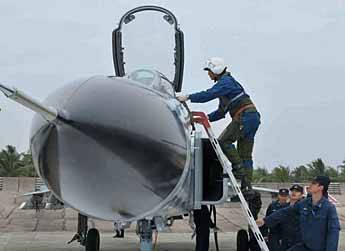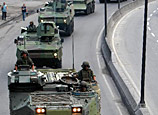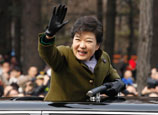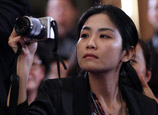
As major developed economies further loosen monetary policies to devalue their currencies and boost exports, Asian and Latin American countries have had to take countermeasures to prevent sharp appreciation of their currencies and to protect their interests. A global currency war has started.
The currency war has increased the risks of imported inflation, shrinking foreign exchange reserves, deteriorating foreign trade environment, and hot money influx, and made it more difficult to conduct financial regulation and implement industrial policy.
Printing money like crazy
The currency war is a condition where countries compete against one another in manipulating the value and supply of their own currency in order to maximize their interests.
Sun Huayu, a professor at Jinan University's International Business School, said the ongoing competitive devaluation can be described as a currency war, but the move actually aimed at reviving the domestic economy rather than starting a currency war.
The United States has been printing money like crazy and launched several rounds of quantitative easing since the subprime mortgage crisis erupted in 2007. This is the root cause of the ongoing currency war.
“Given the large size and great openness of the U.S. economy, U.S. domestic policies have a strong spillover effect, and can cause inflation and capital bubbles in other countries through trade and capital flows. If the bubbles burst, financial crises will occur,” Sun said.
Furthermore, the new Japanese prime minister has reiterated that Japan will further loosen its monetary policy to get the domestic economy out of deflation. The European Central Bank, Bank of England, and other Western central banks have then followed suit to announce they will adopt more active monetary policies to stimulate economic growth, leading to greater tension worldwide. In order to protect their own interests, Brazil, South Korea, Israel, Switzerland, and other countries have had to take strong measures to prevent excessive appreciation of their currencies.
However, Christine Lagarde, managing director of the International Monetary Fund (IMF), said that worries about the currency war are unfounded.
Angel Gurria, secretary-general of the Organization for Economic Co-operation and Development (OECD), also said there is no currency war.
Sun noted that the two institutions brushed off talk of the currency war because they are political allies of developed countries, and stable economies in developed countries serve their interests. If the currency war was started by China, they would have criticized China bitterly.
Will China join the currency war?
Who will benefit from the currency war? Sun believes that the country that first devalued its currency obtained some benefits, but its policy damaged the interests of other countries and resulted in competitive devaluation. At last, a currency war occurred, disrupting international trade, investment, and monetary systems and harming all countries involved.
“China is unlikely to join the currency war!” Sun said. China opposes the policy of quantitative easing adopted by the United States and Japan, and all of its macro-control and monetary policies are aimed at promoting domestic economic development. The yuan is not an international currency yet, so China’s monetary policy has little spillover effects.
Although China will not join the currency war, widespread quantitative easing has produced many negative effects on China. Sun noted that the overly loose monetary policies of developed countries have led to massive flows of cheap capital into emerging market economies as well as a large influx of international hot money into China. This has caused a large number of financial asset bubbles, and made it more difficult to conduct financial regulation and implement industrial policy.
Furthermore, excessive liquidity brought about by widespread quantitative easing has placed China under heavier pressures of imported inflation, shrinking foreign exchange reserves, and deteriorating foreign trade environment.
Read the Chinese version at: 中国如何力避为“货币战”埋单, Source: People's Daily Overseas Edition, Author: Luo Lan
















 Separate accounts or joint account? How Chinese balance the family books?
Separate accounts or joint account? How Chinese balance the family books?


![]()
